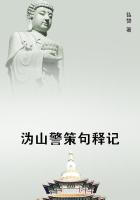It was yet ingenuous, imaginative and confiding in such matters.A baronetcy and a manor house reigning over an old English village and over villagers in possible smock frocks, presented elements of picturesque dignity to people whose intimacy with such allurements had been limited by the novels of Mrs.Oliphant and other writers.The most ordinary little anecdotes in which vicarages, gamekeepers, and dowagers figured, were exciting in these early days."Sir Nigel Anstruthers," when engraved upon a visiting card, wore an air of distinction almost startling.Sir Nigel himself was not as picturesque as his name, though he was not entirely without attraction, when for reasons of his own he chose to aim at agreeableness of bearing.He was a man with a good figure and a good voice, and but for a heaviness of feature the result of objectionable living, might have given the impression of being better looking than he really was.New York laid amused and at the same time, charmed stress upon the fact that he spoke with an "English accent." His enunciation was in fact clear cut and treated its vowels well.He was a man who observed with an air of accustomed punctiliousness such social rules and courtesies as he deemed it expedient to consider.An astute worldling had remarked that he was at once more ceremonious and more casual in his manner than men bred in America.
"If you invite him to dinner," the wording said, "or if you die, or marry, or meet with an accident, his notes of condolence or congratulation are prompt and civil, but the actual truth is that he cares nothing whatever about you or your relations, and if you don't please him he does not hesitate to sulk or be astonishingly rude, which last an American does not allow himself to be, as a rule."By many people Sir Nigel was not analysed, but accepted.
He was of the early English who came to New York, and was a novelty of interest, with his background of Manor House and village and old family name.He was very much talked of at vivacious ladies' luncheon parties, he was very much talked to at equally vivacious afternoon teas.At dinner parties he was furtively watched a good deal, but after dinner when he sat with the men over their wine, he was not popular.
He was not perhaps exactly disliked, but men whose chief interest at that period lay in stocks and railroads, did not find conversation easy with a man whose sole occupation had been the shooting of birds and the hunting of foxes, when he was not absolutely loitering about London, with his time on his hands.The stories he told--and they were few--were chiefly anecdotes whose points gained their humour by the fact that a man was a comically bad shot or bad rider and either peppered a gamekeeper or was thrown into a ditch when his horse went over a hedge, and such relations did not increase in the poignancy of their interest by being filtered through brains accustomed to applying their powers to problems of speculation and commerce.He was not so dull but that he perceived this at an early stage of his visit to New York, which was probably the reason of the infrequency of his stories.
He on his side was naturally not quick to rise to the humour of a "big deal" or a big blunder made on Wall Street--or to the wit of jokes concerning them.Upon the whole he would have been glad to have understood such matters more clearly.His circumstances were such as had at last forced him to contemplate the world of money-makers with something of an annoyed respect."These fellows" who had neither titles nor estates to keep up could make money.He, as he acknowledged disgustedly to himself, was much worse than a beggar.There was Stornham Court in a state of ruin--the estate going to the dogs, the farmhouses tumbling to pieces and he, so to speak, without a sixpence to bless himself with, and head over heels in debt.Englishmen of the rank which in bygone times had not associated itself with trade had begun at least to trifle with it--to consider its potentialities as factors possibly to be made useful by the aristocracy.Countesses had not yet spiritedly opened milliners'
shops, nor belted Earls adorned the stage, but certain noblemen had dallied with beer and coquetted with stocks.One of the first commercial developments had been the discovery of America--particularly of New York--as a place where if one could make up one's mind to the plunge, one might marry one's sons profitably.At the outset it presented a field so promising as to lead to rashness and indiscretion on the part of persons not given to analysis of character and in consequence relying too serenely upon an ingenuousness which rather speedily revealed that it had its limits.Ingenuousness combining itself with remarkable alertness of perception on occasion, is rather American than English, and is, therefore, to the English mind, misleading.















